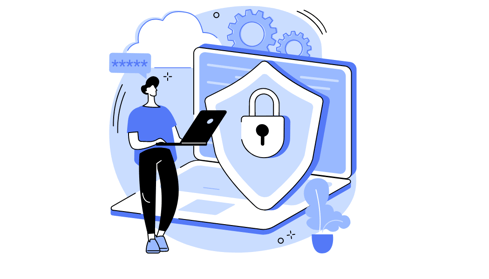Cybersecurity Measures Every Small Business Should Implement
In today's fast-paced digital landscape, small businesses are increasingly reliant on technology to drive growth and efficiency. While these advancements offer numerous benefits, they also expose small businesses to a plethora of cybersecurity threats.

The consequences of a successful cyberattack can be devastating, resulting in data breaches, financial losses, and reputational damage. It is crucial for small businesses to prioritize and implement robust cybersecurity measures to safeguard their assets and customers' trust.
Here are some essential cybersecurity tips that every small business should adopt to create a safer workplace and protect against potential threats.
Employee Cybersecurity Training
Human error is one of the leading causes of cybersecurity breaches and providing comprehensive cybersecurity training to all employees is paramount. Educate your staff about common cyber threats like phishing emails, social engineering, and malware. Encourage the use of strong passwords and the practice of regular password updates. By fostering a security-conscious culture within your organization, employees will become the first line of defense against cyberattacks.
Regular Software Updates and Patch Management
Outdated software and unpatched systems are prime targets for cybercriminals. Small businesses should establish a robust patch management system to ensure all software, including operating systems and applications, is regularly updated. Implementing automatic updates can significantly reduce the risk of vulnerabilities being exploited, fortifying your cybersecurity defenses.
Firewall and Network Security
Installing a firewall is a fundamental step in protecting your business network from unauthorized access. Firewalls act as a barrier between your internal network and external threats, filtering incoming and outgoing traffic to detect and block potential threats. Additionally, consider using Virtual Private Networks (VPNs) to secure data transmission between remote employees and your company's network.
Data Encryption
Encryption is a powerful technique to safeguard sensitive data from unauthorized access. By encrypting data at rest and during transmission, even if it falls into the wrong hands, it remains unreadable and unusable without the encryption key. This is particularly important when handling customer data, financial records, and other confidential information.
Regular Data Backups
Data loss can be catastrophic for any business. Implementing a robust backup strategy is critical to mitigating the impact of data breaches, ransomware attacks, or hardware failures. Regularly back up your data to secure offsite locations or cloud-based services. This ensures that in the event of a cyber incident, your business can quickly recover and resume operations without significant disruptions.
Access Control and Privilege Management
Limiting access to sensitive information based on job roles and responsibilities is vital to preventing unauthorized access. Adopt the principle of least privilege, granting employees access only to the data and systems necessary for their work. This minimizes the potential damage caused by insider threats or compromised accounts.
Multi-factor Authentication (MFA)
Implementing MFA adds an extra layer of security to user accounts. It requires employees to provide two or more forms of authentication before accessing sensitive data or systems. MFA significantly reduces the risk of unauthorized access, as even if one factor (e.g., password) is compromised, the attacker would still need the additional authentication factor to gain entry.
Cyber threats continue to evolve and grow in sophistication and small businesses must take proactive measures to protect their assets and customers' data. Cybersecurity is not an option but a necessity for every organization, regardless of its size. By implementing these cybersecurity measures, small businesses can significantly reduce their vulnerability to cyberattacks and create a safer work environment.
Cybersecurity is a continuous effort, and staying vigilant and updated on the latest threats is essential to maintaining a robust defense against cybercriminals. Embrace these measures, and your small business will be better equipped to thrive securely in the digital age.
We've got a cybersecurity checklist here to help you with what you need to implement a healthy cybersecurity platform at your business.


